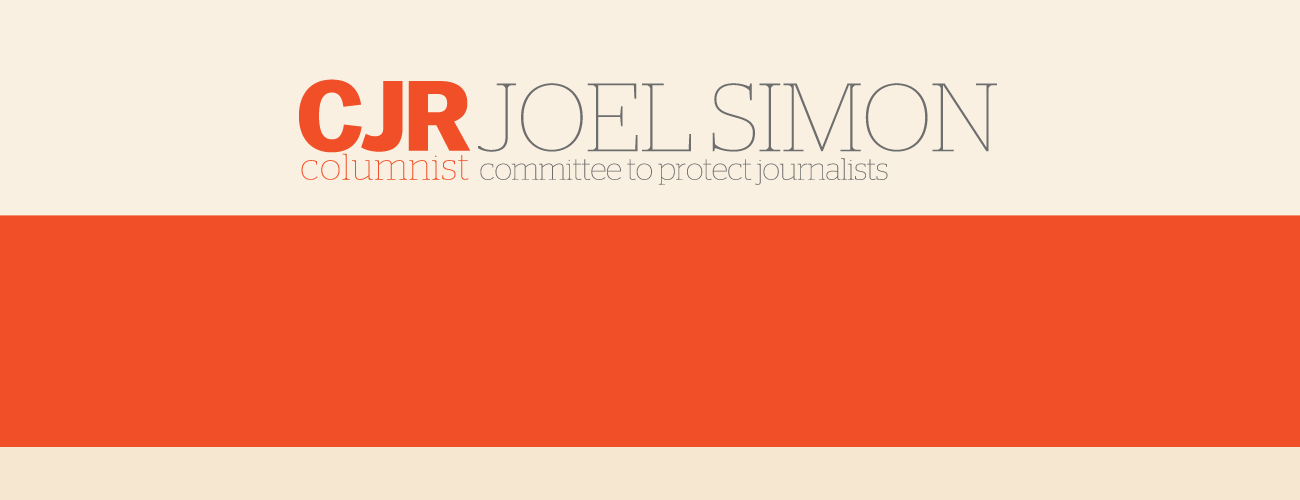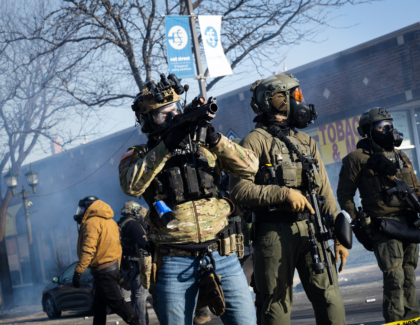Sign up for the daily CJR newsletter.
While Jason Rezaian was languishing in an Iranian jail, an absurd legal process was unfolding outside his cell. Trial dates were being postponed, medical treatment was offered, then withheld, lawyers were being denied access, evidence was getting blocked, verdicts were issued in secret, and sentences were never handed down. At last, the Washington Post journalist was released. But the fact that it came about through a “prisoner exchange” confirms what was obvious: this case was never about journalism. Rezaian was a political hostage, imprisoned by Iran to make a point domestically, and to extract concessions from the international community.
The reasons behind Rezaian’s imprisonment have still not been fully clarified, but according to Iranian journalists with whom I’ve spoken there were two factors. The first was Rezaian’s access, particularly to the inner circle of President Hassan Rouhani. His relationships were solely about journalism, but they were viewed with suspicion by hardliners in the Iranian regime, particularly the Revolutionary Guards. They control the judiciary and are believed to have orchestrated Rezaian’s arrest.
But there was another equally important consideration–a desire to influence the negotiations over the nuclear deal. By holding Rezaian, the Revolutionary Guards and other hardline elements were exercising a functional veto. If the deal proved acceptable to Supreme Leader Ali Khamenei, then Rezaian would be released. If Khamenei opposed the deal, then Rezaian would stay in jail, making it difficult for the Obama administration to sell the agreement to a skeptical American public.
But things did not play out that way. A key factor was Secretary of State John Kerry and other US officials who decided not to link Rezaian’s imprisonment to the nuclear negotiations. To do so, they believed, would strengthen the hardliners in Iran who opposed any deal. Instead, US officials raised Rezaian’s case on the sidelines of the negotiations, and were repeatedly reassured by their Iranian counterparts that they were doing everything they could to resolve the situation.
When the nuclear deal was concluded in July, many analysts figured that the Iranian authorities would find some face-saving maneuver to release Rezaian, as had been done with other foreign journalists imprisoned in Iran. In a September interview with 60 Minutes, Rouhani suggested that Rezaiain could be released as part of a prisoner exchange. While previously Rezaian’s imprisonment had been used to undermine the president’s authority, now Rouhani was taking ownership of the case, suggesting a path toward resolution.
In fact, based on reports in the Huffington Post and elsewhere, we now know that negotiations for a prisoner exchange were already underway. While not all the details are known, the basic contours are clear. Rezaian and three other Americans were released in exchange for seven Iranian-Americans jailed in the US on charges of evading sanctions.
As in all political deals, both sides got something in return. The Iranians were able to strengthen their claim that they’re a responsible actor on the world stage and a stabilizing influence in the region. Domestically, the release bolsters the government’s contention that Rezaian was in fact a spy, since officials can argue that it is spies and not journalists who are released as a result of a prisoner exchange.
For the Obama administration, the release of the Rezaian removes an impediment to the implementation of the nuclear agreement at a time when world leaders are gathering in Vienna for the formal lifting of sanctions.
In this sense, the deal could be termed a success, and US officials should be commended for the winning the release of Rezaian and the other imprisoned Americans. At the same time, it is important to recognize that the deal required the sacrifice of a fundamental principle. Iran is not being held to account for its horrendous violation of Rezaian’s human rights by holding him for 18 months. Moveover, 18 other journalists, all of them Iranian, languish in prison today. Ensuring that Iran pays a price for its abysmal behavior remains unfinished business.
So while we celebrate the Rezaian’s release and give credit to a global campaign that included the Washington Post, Rezaian’s family, and organizations like the Committee to Protect Journalists and Reporters Without Borders, our joy should be tempered by a sobering reality. If Jason Rezaian was a judicial hostage, he is free today because the ransom was paid.
Has America ever needed a media defender more than now? Help us by joining CJR today.







